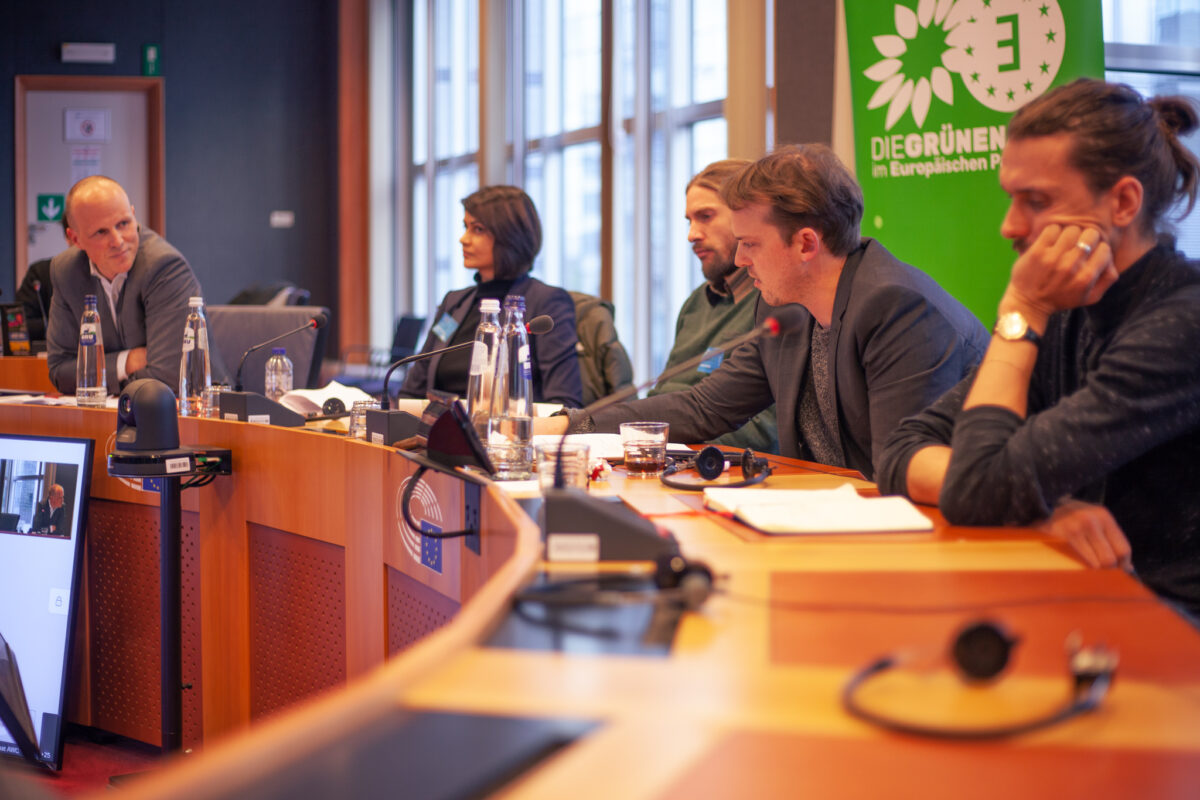Roundtable discussion on the Global Gateway Initiative

Together with the organization Eurodad I have organized an event on the new Global Gateway Initiative organized by the European Commission. The initiative aims to bring together development goals and geopolitical interests to close the current financial gap for the implementation of development goals by mobilizing over 300 billion euros by the end of 2027. In order to facilitate an exchange between the Commission, Eurodad and representatives from the European Parliament and civil society, we met on 16/11/2022 to discuss the initiative in depth.
Our panel consisted of Farwa Sial, senior policy and advocacy officer for development finance at Eurodad, Nicolas StoetzelDeputy Head of Unit in DG INTPA of the European Commission, Shereen Talaat, Co-Executive Director of the Arab Watch Coalition, Wester Van Gaal, from the EUobserver and Frank Vanaerschot, Director at Counter Balance.
The Global Gateway a neocolonial project?
One of the major criticisms of the initiative is that it conflates the EU's geopolitical interests with development goals. The primary goal of development cooperation should be poverty reduction and not to strengthen the EU as a global political power. To ensure that the initiative does not have a neocolonial flavor, it is important to focus on a partnership of equals, the NGOs urge. Critics complain of a lack of transparency in the selection of projects, in the monitoring of development impact, and in human rights.
Investments via the private sector
The Global Gateway Initiative prioritizes investments through the private sector. However, this often only results in investments in already stronger economic regions, which means that the countries that need support the most benefit little or not at all. In addition, there is a risk that if private investment is prioritized in education and health care, those essential public facilities will be privatized and become more expensive, and thus no longer accessible to all segments of the population. There has also been criticism that the EU needs to take more responsibility and leadership within this initiative. Currently, it is not clear to partners and the public who is politically responsible for the projects. However, the Covid pandemic in particular has shown that clear leadership and accountability is needed, especially in uncertain times, to put funds where they will help those who need them. Eurodad has criticized, among other things, that partner countries in particular would also prefer other methods of financing, for example debt relief or direct financial support.
Results of the discussion – lack of communication from the Commission.
In the course of our discussion, it came out that for many of the concerns, mechanisms and rules are already in place to ensure that, for example, development goals and partner country interests are respected. However, the Commission has not communicated clearly enough in this regard, as Mr. Stoetzel had to admit.
Nicolas Stoetzel was able to dispel many concerns within our event. Together with the partner countries, relevant investment areas are identified and project proposals are developed. All projects within the Global Gateways are subject to the rules of the NDICI and the development goals of the partner countries. Clearly, it will be a challenge to reconcile the commercial interests of private investors with development objectives, but this is of enormous importance to close the financial gap. More information will be published soon on the website of the Commission to clarify the questions that came up in our discussion. In general, it must be said that it is positive when funds are mobilized and projects are financed.